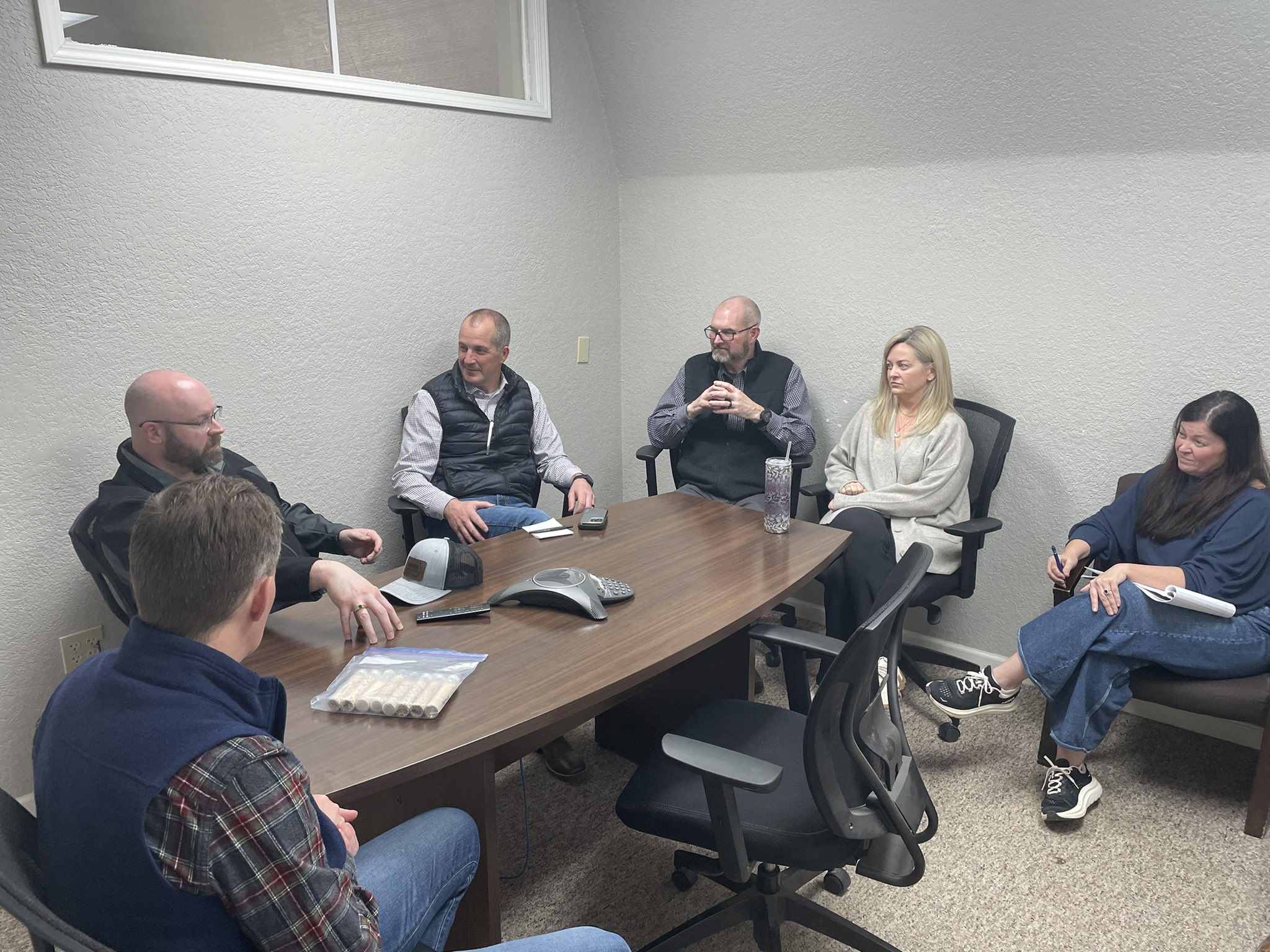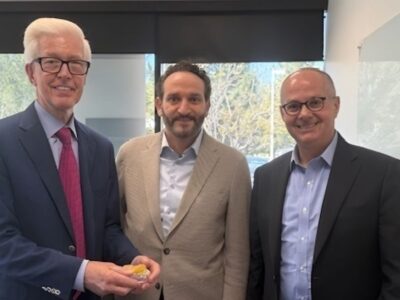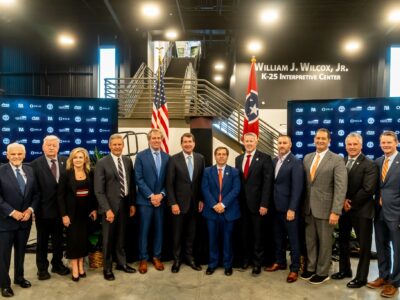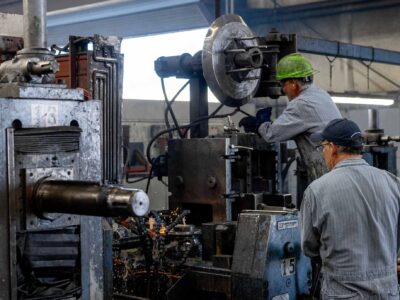In the small town of Conrad, Iowa, the family-owned Green Products Company has been processing domestically sourced corncobs since 1985. “You can see that pile of corn cobs from miles away as you’re coming down (Highway) 14,” Iowa Rep. Joshua Meggers (R-Grundy Center) said.
With one pound of pith and chaff capable of absorbing approximately four pounds of water, corncob particles can be used to absorb industrial byproducts or as a carrier for substances like animal medications, feed nutrients, and pesticide ingredients. Their abrasiveness, which is not quite as rough as sand, makes them useful for cleaning factory interiors and equipment, finishing metal parts, or removing oil and grease. Their biodegradability means they can be used to grow mushrooms or left on the ground after blasting logs. Plus, they are a renewable byproduct of the corn industry’s annual harvest, meaning more are always available.
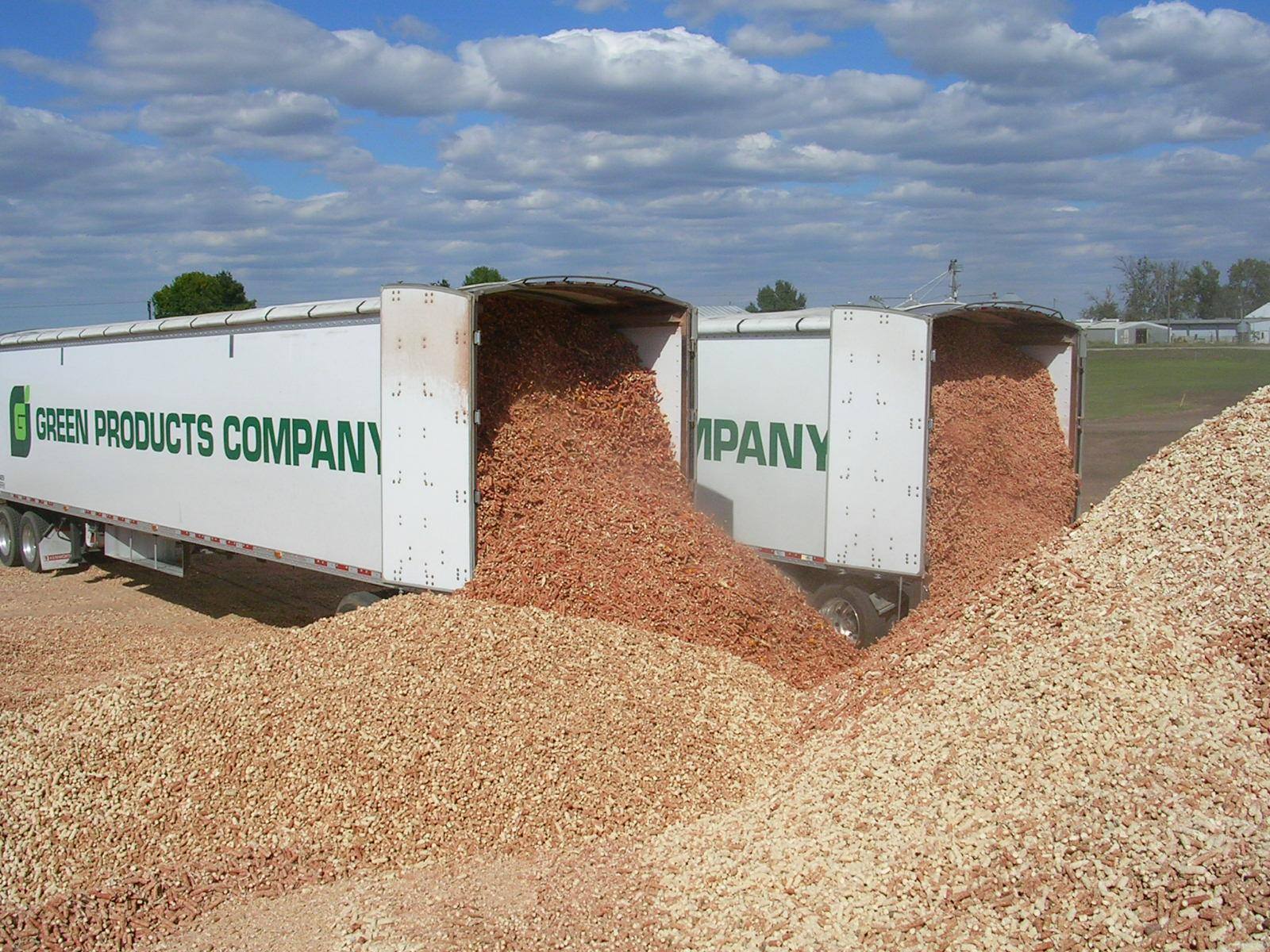
Photo Courtesy Green Products
Iowa Secretary of Agriculture Mike Naig, who last year joined Consensus’s Iowa Farm Fluencers Event, visited the company’s location in early April. He told Central Iowa Today, “What we do here in agriculture in Iowa, in the big picture, is we take the things that we grow in mass quantities and we add value to those things. And certainly they’re doing that with processing corn cobs into some precision materials, some materials that have uses in other industries.”
During the visit, Vice President of Business Development Luke Schryver, his cousins and Associate Vice Presidents Jill Schryver and Jami Rolston, discussed the company’s unique operations, with only two other facilities doing the same kind of work in the U.S. Luke said, “It’s just fascinating because it’s this little world that nobody knows exists,” according to the Times-Republican.
The company employs approximately 120 people, but Luke expressed concerns about being unable to find more, despite a 30% to 50% wage increase for hourly workers since the COVID-19 pandemic. Jill noted that despite efforts to offer competitive benefits, a small company like theirs struggles more with those expenses than a larger corporation would. “If we implemented a minimum wage of $100,000, yes, we could probably staff everything, but that’s not particularly realistic,” Luke commented. Jami, who resides on a farm six miles away, reflected on the general plight facing the agricultural community in the area: “Even in an area where it’s all about ag, that family farm used to really be the backbone of this area, and that’s a struggle.”
Meggers, who also visited Green Products, added his perspective: “This is my third year down there (in the Legislature), but I coined the phrase ‘Rural bleed.’ It seems like we’re constantly taking from rural Iowa, giving it to the urban areas and we’re getting nothing in return except for people leaving. So our Main Streets are hurt, our businesses, school districts (with) consolidations, and so we’ve gotta do something.”
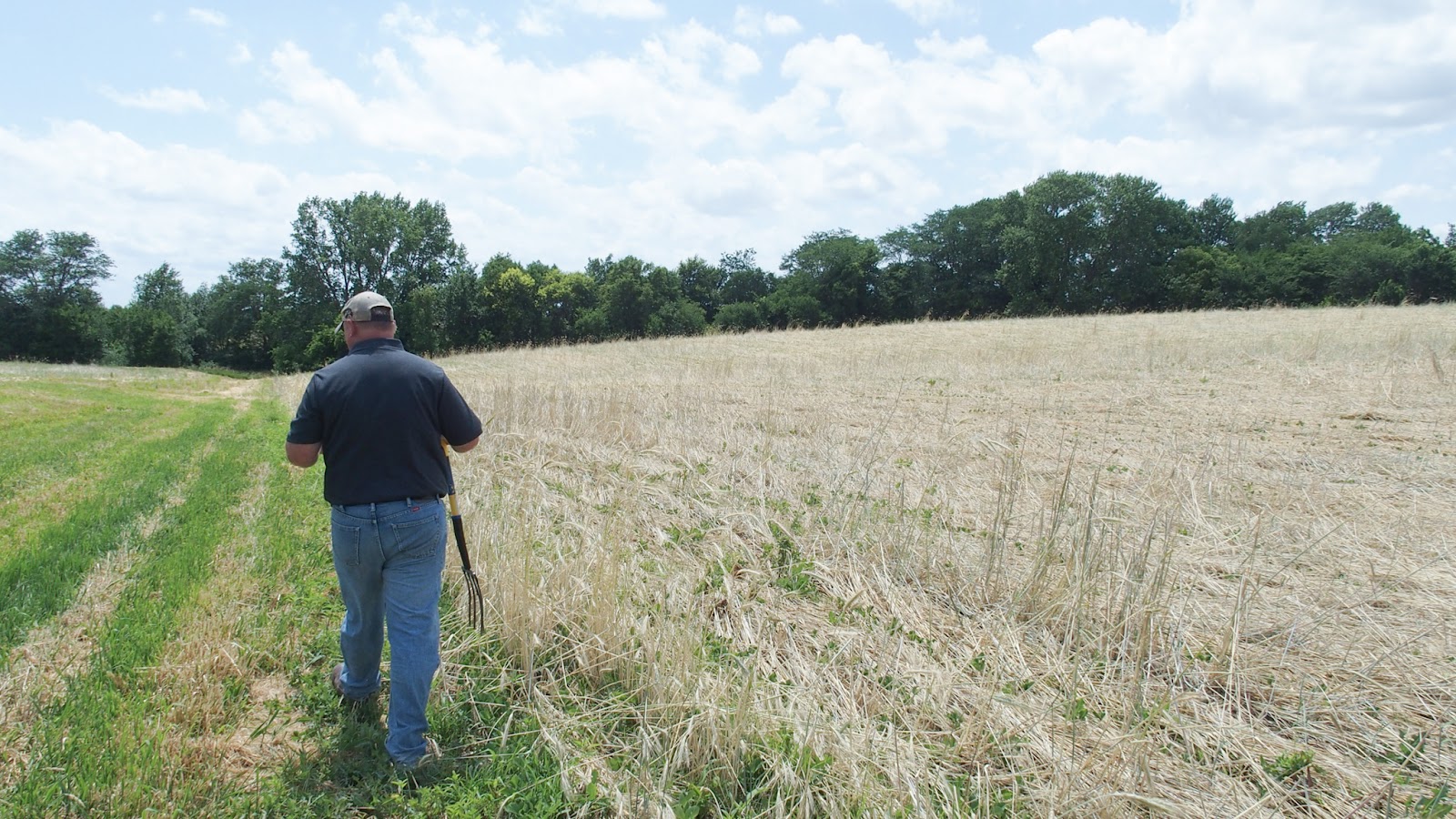
Photo Courtesy Iowa Farm Bureau
Naig and Meggers both offered their ideas for addressing the problems facing small rural businesses. Meggers noted that funneling tax credits and economic development funds toward rural areas would be more beneficial than directing them toward the rapidly expanding Des Moines metro area or the Cedar Rapids/Iowa City corridor.
Naig discussed the importance of good education and infrastructure and a welcoming climate for business to entice more people to move to similar areas and contribute to the rural Iowan workforce: “I think that one of the great advantages we have over so many other places is, one, the low cost of living in the state of Iowa, our low taxes. That’s gonna be something that we can continue to use to recruit businesses and families here. And I think the other is it’s a good place to grow up and raise a family, and we can recruit and see an inflow of folks like that.”
While on his annual tour of every Iowa county, Naig has visited numerous farms. He noted that farmers are increasingly diversifying their income streams beyond planting and harvesting crops and raising livestock, even though the trend is still a work in progress. He also advocated for more farmers to adopt conservation tactics, such as planting cover crops to prevent wastewater runoff and soil erosion.
Naig and Meggers also discussed the role of housing in economic development. According to Naig, he frequently hears about the detrimental impact of the lack of affordable housing and childcare on rural economic development. Meggers added that communities like Grundy Center, where he lives, are reluctant to build expensive housing and therefore need to expand into smaller townhouses, especially as older residents downsize.
While housing proves to be an obstacle, Conrad Mayor Jeff Martin, who is also Green Products’ safety and human resources director, highlighted that the town is showing positive expansion through the upcoming groundbreaking of a new UnityPoint Health clinic and Dollar General.
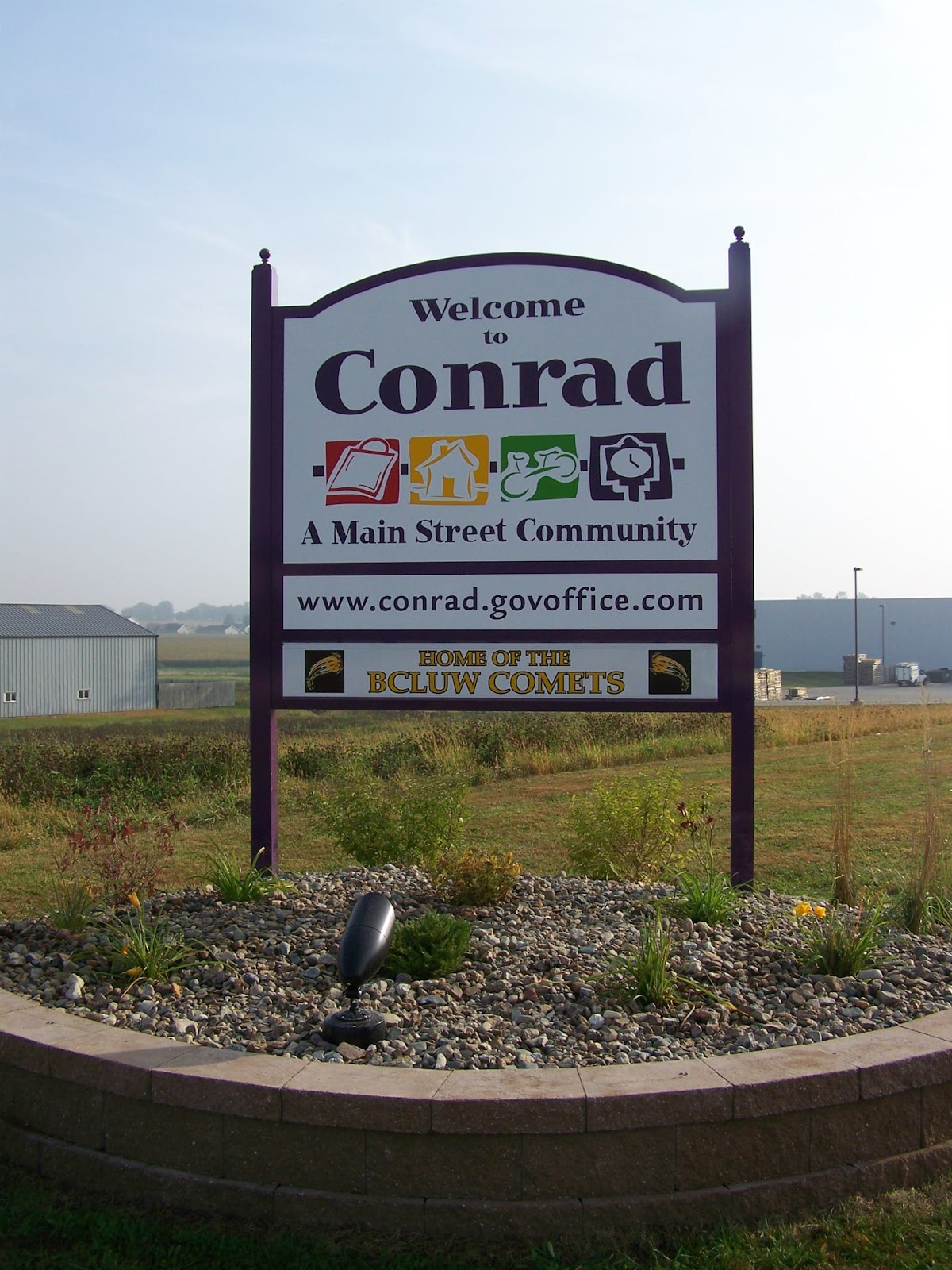
Photo Courtesy City of Conrad
Despite the challenges of rural life, Green Products’ work contributes value to the local and state economies. Naig reflected, “I know about the company and what they do here, but I’ve never had the chance to visit. So (I’m) very impressed. We love value-added agriculture here, so these guys are taking what could be a waste stream as in corn cobs from the seed industry and turning it into something that’s incredibly high value. Of course, we’re capturing that value in the state of Iowa when that happens here. I love that because that story gets told over and over again of how we add value to ag, and of course, the challenges we talked about are ‘What’s it like to do business in rural Iowa?’ What are the challenges around workforce and cost of capital and those types of things, so it’s good to have a good discussion with the team.”
At the end of the tour, Luke told Naig that he would be welcomed back anytime for another visit: “We’ll be here grinding cobs and driving trucks.”

